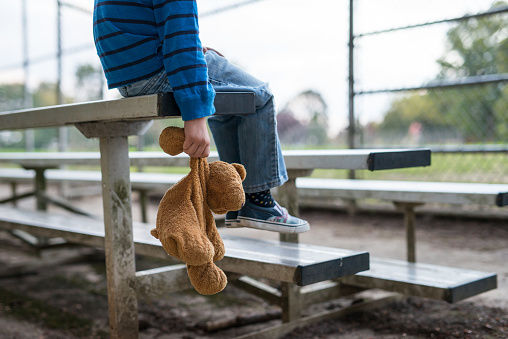Surviving A World On Fire
- Donna

- Apr 1, 2023
- 3 min read

In these tumultuous and trying times, it can be incredibly hard to keep a sense of balance and composure in the midst of chaos. The world is seemingly on fire with political, social, and spiritual unrest, and it's all too easy to succumb to feelings of anxiety and overwhelm. For those struggling with anxiety, depression, or post-traumatic stress disorder (PTSD), this can be an especially challenging period. However, there is a range of coping mechanisms that can help individuals manage their stress levels and retain a sense of equilibrium in the face of uncertainty.
Physical Exercise
The first effective strategy for managing anxiety is to engage in physical exercise. For decades exercise has been shown to have a range of physical and mental health benefits, including the release of endorphins that can elevate mood, and the reduction of stress hormones such as cortisol. Additionally, engaging in regular physical activity can provide a sense of structure and routine to daily life, which can help individuals feel more grounded and stable amid uncertainty.
Get Creative
Another useful coping skill is to engage in creative pursuits such as writing, painting, or music. Engaging in artistic activities can provide an outlet for emotions and can help individuals process complex feelings in a healthy and constructive way. Moreover, creative activities can provide a sense of purpose and meaning, which can be especially important during times of upheaval and disruption.
Practice Mindfulness
Mindfulness is a powerful coping mechanism that can help you manage anxiety, depression, and PTSD symptoms. It involves paying attention to the present moment without judgment. By focusing on your breath, noticing your thoughts without engaging with them, or simply observing your surroundings with curiosity and openness, you can stay grounded and centered, even in the midst of uncertainty. Mindfulness will also help you develop a greater sense of awareness and calm. It will enable you to identify and manage triggers that exacerbate your symptoms.
Stay Connected
Social connection is essential for mental health, especially during times of uncertainty and chaos. When you're feeling overwhelmed and tense, it's important to reach out for support. Join a support group, attend virtual events, or participate in online communities that share your interests.
Limit Exposure to News and Social Media
While it's important to stay informed about what's happening in the world, it's also important to limit your exposure to news and social media. Constantly scrolling through your newsfeed or watching the news can be overwhelming and can exacerbate anxiety and PTSD symptoms. Try to limit your screen time and set boundaries around when and how much news you consume. Consider setting aside specific times each day to check the news or social media, and avoid checking your phone or computer before bed.
Create a Routine
Creating a routine can help you establish a sense of stability and predictability during uncertain times. This can include setting a regular sleep schedule, establishing a morning routine, or scheduling time for exercise or other activities that you enjoy. A routine can help you stay focused and productive, even when everything around you feels chaotic.
Gratitude
In addition to these strategies, practicing gratitude can also be an effective coping mechanism. By focusing on the good in one's life and growing an appreciation for the people and things that matter most, individuals can shift their focus away from negative feelings and towards a more positive outlook. This can be especially beneficial during times like these; a time of uncertainty. It can help individuals to find their resilience and sense of hope and optimism in the face of difficult circumstances.
In conclusion, these challenging times can be difficult, but there are steps you can take to manage your emotions and find a sense of calm. By practicing physical activity, creative projects, gratitude, mindfulness, staying connected, limiting exposure to news and social media, creating a routine, and seeking professional help, you can navigate these challenging times with greater ease and resilience. There are also resources available at Global Therapy that can help you connect with mental health professionals from around the world. Remember, it's healthy to ask for help. Don't hesitate to reach out to Global Therapy, Inc at 479-268-4598 or Admin@global-therapy.com if you're struggling, and remember to take care of yourself during these challenging times.
%20(002).png)



Comments